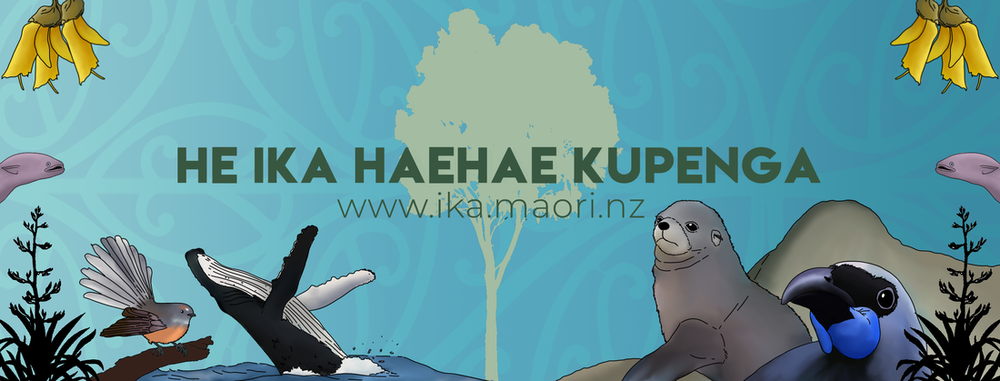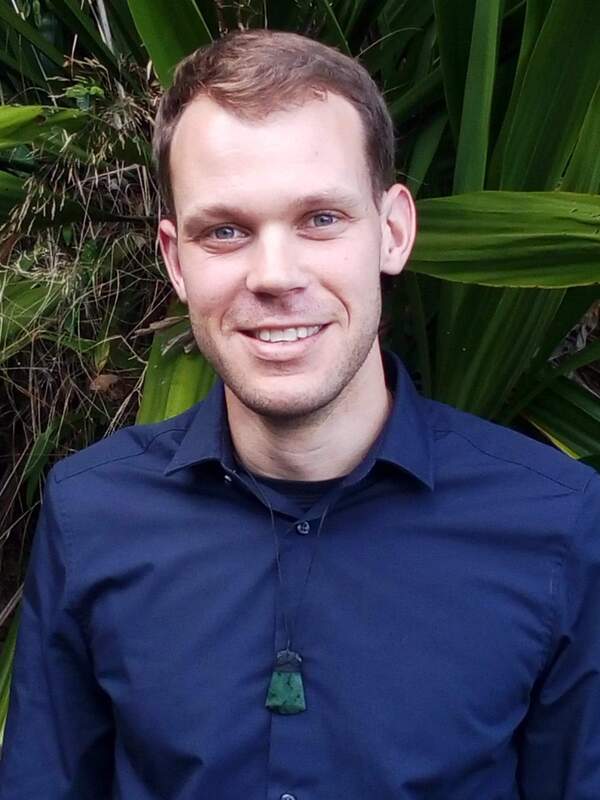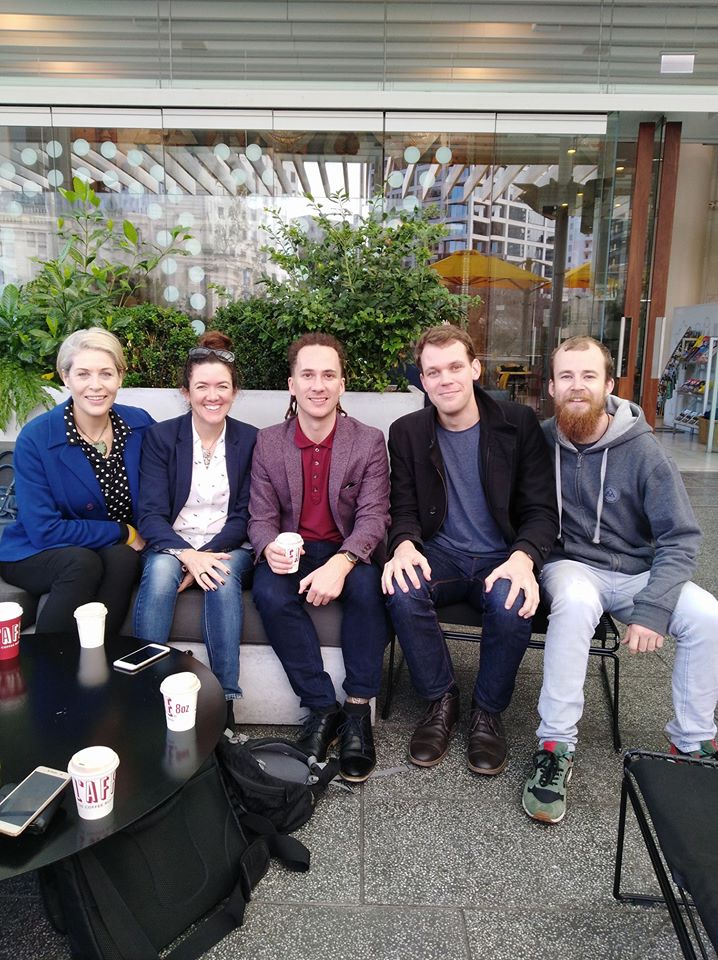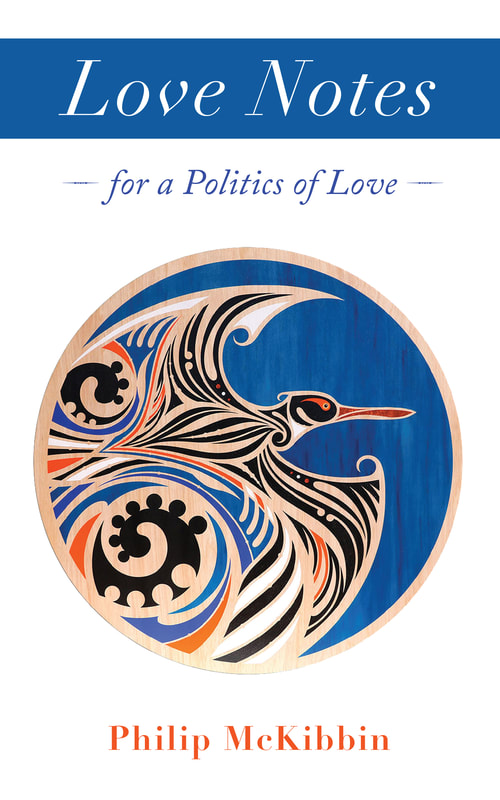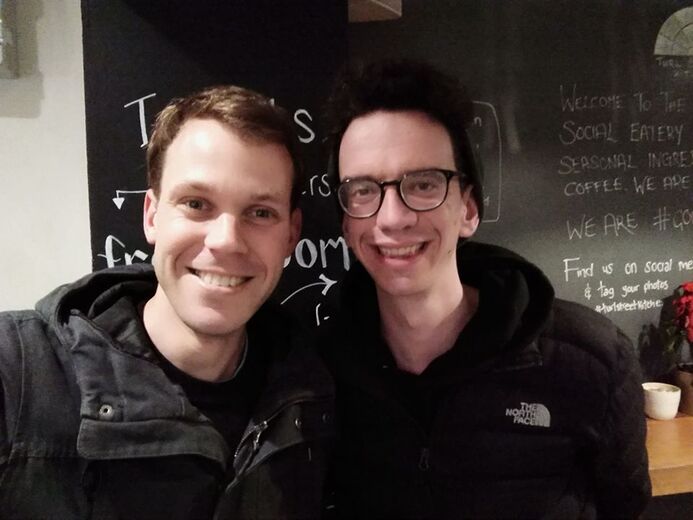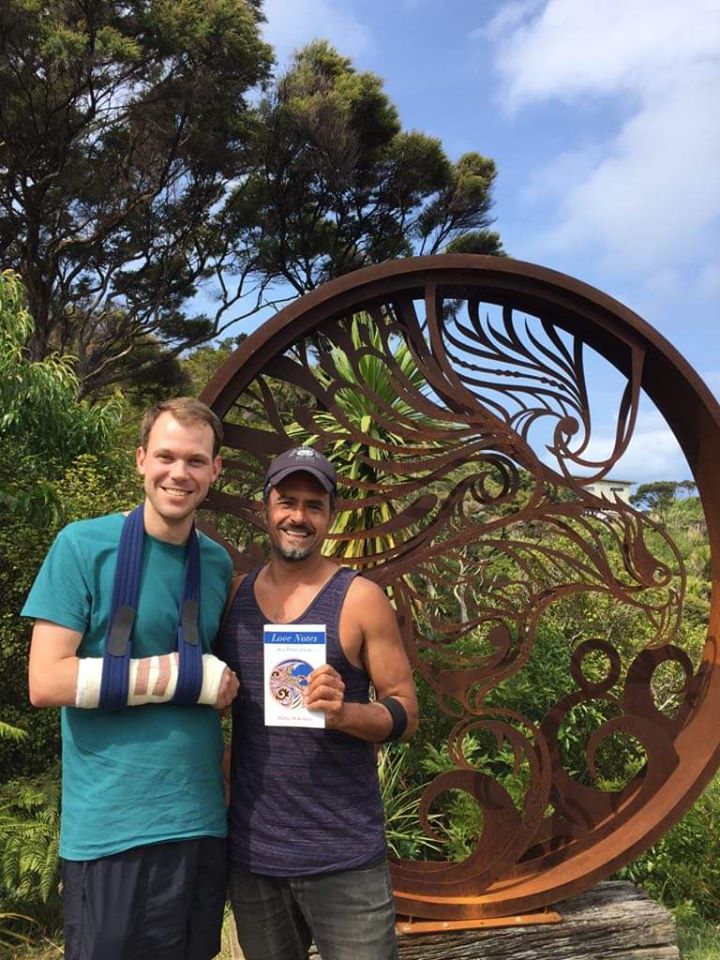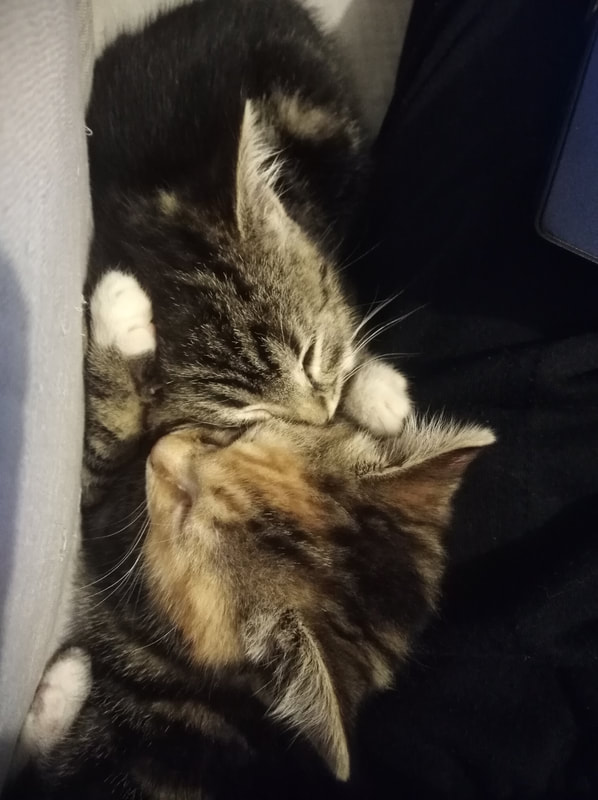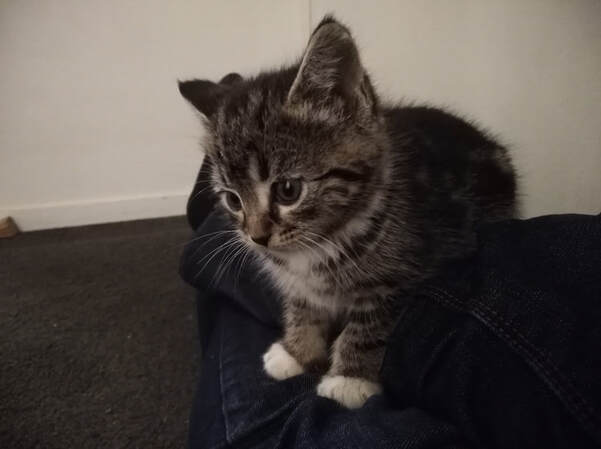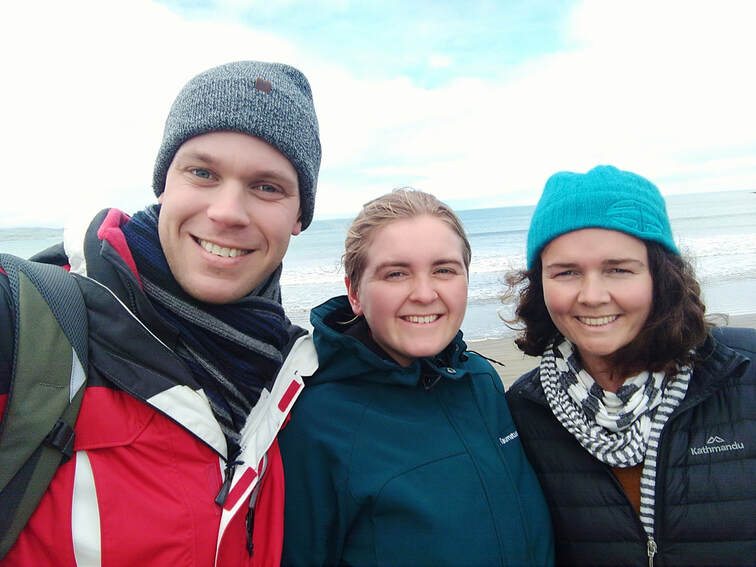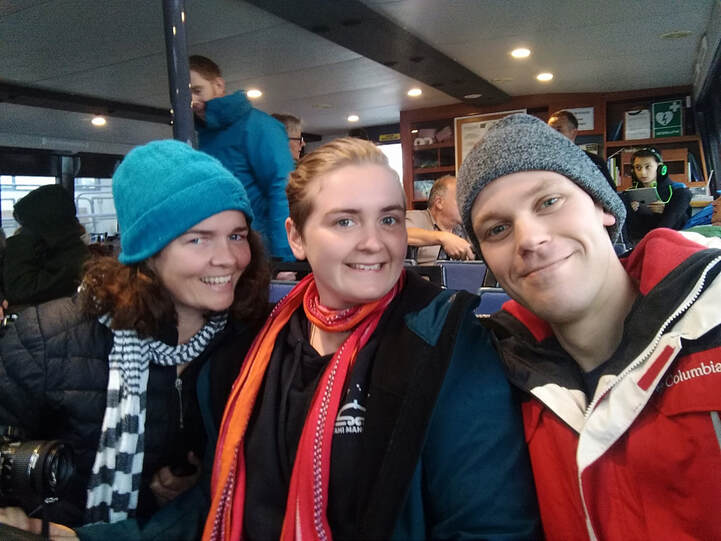Philip (Piripi) McKibbin
interview with Jo Pannell
Philip (Piripi) McKibbin (Ngāi Tahu) is an independent writer. He holds a Master of Arts in Philosophy from the University of Auckland and diplomas in te reo Māori from Te Wānanga o Aotearoa. He is passionate about te reo Māori, which he tutors; he also helps to organise Kapa Kōrero, a reo Māori conversation group, in Tāmaki-makau-rau, where he lives. His book, Love Notes: for a Politics of Love, is published in the U.S. by Lantern Books.
Jo Pannell (tauiwi) is from South Africa. She graduated from Wits University with a Master’s degree in Social Anthropology, and she has been pursuing te reo Māori and its ancient tikanga for the past 12 years. In 2017, she graduated with Te Pīnakitanga ki te Reo Kairangi from Te Wānanga o Aotearoa, and she currently works as a kaiāwhina reo. She lives in Tāmaki-makau-rau with her partner, Gerry, and their two teenage daughters.
http://www.philip-mckibbin.com/
https://www.apoliticsoflove.com/
https://www.facebook.com/philipmckibbinanz/
https://www.apoliticsoflove.com/
https://www.facebook.com/philipmckibbinanz/
He Ika Haehae Kupenga is a great kaupapa. What was your motivation for the website and interview series?
|
Tēnā koe, e kare.
I started the website because I really want to see more people making positive changes around kai. I think that this is something meaningful that all of us can do - for te taiao, for our hauora, and for other animals. Here in Aotearoa, we’re realising that a lot of the kai we’re eating actually has a lot of negative consequences. Meat and dairy, for example, are really bad for the environment – the agriculture industry is responsible for almost half of our greenhouse gas emissions, and cattle farming, especially, is degrading our land and polluting our awa. If enough of us changed our eating habits, that would have a huge impact on Papatūānuku. I believe Māori can lead in this area. For one thing, I think everyone has to play their part. More than that, though, I think that, as Māori, we have the strength to lead – we have cultural understandings, and experience as indigenous people and peoples, that mean we’re well-placed to effect change. My hope is that this website will play a small part in encouraging other Māori to recognise that strength, and take a leading role.
|
If you look closely, you realise that there are a lot of tāngata Māori who are leading – many of us are making positive changes around kai. I wanted to highlight that, and I guess I thought that by gathering some of these kōrero together, it would allow more of us to make connections to, and between, these kaupapa. At the same time, though, there are a lot of ways in which we aren’t leading – areas where, I believe, we could be doing better. An obvious example is iwi investment in animal agriculture. Personally, I think this needs to end, now. Also, as Māori, we have high rates of meat and dairy consumption. There are complex reasons for this, and I think those need to be thought through critically; but I also believe we have agency here, and my hope is that the Māori voices this website raises will help us to see that, and to think through what rangatiratanga means when it comes to kai. In a sense, then, this website is an intervention: by Māori, with Māori, and for Māori – me te ao katoa…
I conceive of He Ika Haehae Kupenga as a Kaupapa Māori framework for exploring individuals’ contributions to the development of tikanga around kai, and for critique, as well. The phrase ‘he ika haehae kupenga’ is a kupu whakarite – a metaphor – which typically refers to someone who’s a troublemaker. It literally means ‘the fish who tears the net’. So, a fish who tears the net and gets free – and, as you helped me to understand, e kare, one who, in doing that, allows other fish to escape as well. It appealed to me when I first heard it, because it’s a very vegan image, isn’t it? I think of these ika not as troublemakers, so much as individuals who recognise that sometimes we need to challenge the status quo, and do things differently. These people might seem like troublemakers, but they’re doing what they know is right, and they aren’t afraid of controversy. These aren’t ihu hūpē – in fact, they know exactly what they’re doing. Te ao Māori gives many examples of people who break the rules, who go off on their own in pursuit of some higher good. Māui is the most well-known of these. If you read through the kōrero that are shared to the site, freedom, rangatiratanga, and decolonisation are recurring themes, so I think the metaphor is particularly appropriate.
I think about this in relation to revolt, or rebellion. Love is very important, too. I’m vegan, and something that has been imperative for me, with that, has been to reconcile my love of te ao Māori with my love of animals. I think rebellion is one way of working for reconciliation. One of the thinkers who has influenced my thinking is Albert Camus. He was French Algerian, and one of the reasons I admire him is because when his country was going through its violent anti-colonial struggle, he stood amongst the French and the Arabs, as one who loved both, calling for understanding and togetherness. Of course, he suffered for it! In one of his books, The Rebel, he describes rebellion as ‘a demand for clarity and unity’. A rebel is someone who confronts a shattered world, in order to make it whole. He Ika Haehae Kupenga, then, is as much about unity and reconciliation as it is about critique.
I’m also very interested in effective activism – what makes activism successful. There’s a lot of ineffective activism out there, however well-intentioned it is. I believe in the strength of ideas, the power of communication; and I think, for us as Māori, seeing other Māori who are leading by example is what inspires us to be the best we can be.
Could you tell us a bit about your personal journey to veganism?
|
Like most New Zealanders, I was brought up eating meat. I don’t think I ever really thought about it, until I was an adult. When I was a postgraduate student at the University of Auckland, I tutored some philosophy papers. I loved it, because philosophy is all about ideas, and in my view, critical thinking is a superpower. One of the papers I tutored was Introduction to Ethics, which was a Stage 1 paper, and it had a practical ethics component, which focused on animal ethics. It was there that I first heard about some of our worst farming practices. Also, one of the women I was tutoring with was vegan – the first vegan I’d ever met! – so she and I had some conversations about that, too. But it took me a long time to make the change. I tutored that paper for three years, and each year, I felt worse about my meat-eating! So eventually, I decided to change… and again, I took my time. I think it took me about a year to go vegetarian, once I’d decided that that’s where I was, philosophically. I started by cutting out pork, because I knew pigs were treated especially badly. Eventually, I cut out meat, poultry, and fish entirely – and I didn’t look back.
|
I was a vegetarian for about two years. I didn’t really know what I was doing, but I knew why I was doing it. As a vegetarian, I was sympathetic to veganism – I just thought it was too hard. Also, I didn’t really know very much about farming. I feel a bit foolish admitting this, but it didn’t occur to me that to produce milk, and to keep producing it, female cows had to be continuously impregnated; and because I never thought about that, I never asked what happened to the calves. Eventually, I started dating a wonderful woman who had been brought up as a vegetarian, and had been vegan for 10 years. She is very intelligent – she is a lawyer, and she ended up going to Harvard – and she helped me to see that eating animal products like milk and eggs is often just as bad for the animals as eating meat is. What she really helped me to see, though, is that veganism is possible. As I say, I was sympathetic to veganism, I just thought it was too hard, and that, for that reason, we didn’t have a moral obligation to go vegan. My then-girlfriend helped me to see that it was possible. She was really patient with me, she let me ask all of my questions, and she showed me respect by letting me arrive at my own conclusions and make the changes I thought were necessary. It isn’t that she didn’t try to ‘convert’ me to veganism – she knew eating animal products was wrong, and she made that clear to me – but she had faith in my ability to make the right choices. So, really, it was the love she showed me that enabled me to go vegan.
Of course, veganism – unlike vegetarianism – is about more than food, it’s also about what you wear, and the choice not to use animal products generally. This is one reason why it’s often described as a ‘lifestyle’, rather than a ‘diet’.
I’ve been vegan for about four years now, and it’s been around six years since I ate meat. In some ways, this journey has mirrored my exploration of te ao Māori, because I started learning te reo in 2012, and really took the plunge in 2013. At that time, I was only very vaguely aware that I had Māori whakapapa; so in these years where I’ve been making massive changes around kai, I’ve also been uncovering my whakapapa Kāi Tahu, and forging those connections. Going vegan was definitely much easier than reclaiming my Māori identity! But again, it was the love of the people around me that allowed me to be in better relationship with the world around me – my Gran, Rauhina and Demelza (ko rāua ētahi o ōku whanaunga Kāi Tahu; i tērā tau i hoki atu mātou ki ō mātou marae e toru kei Murihiku), my kaiako, my hoa ako, ētahi o ōku hoa Māori, my friends from Kapa Kōrero like yourself…
Another thing, I suppose, is that I’m not afraid to do things differently – I actually see it as necessary. And that goes for all areas of my life: not just veganism, but also my passion for te ao Māori (I’m the only member of my whānau who speaks te reo), and, for example, my views around relationships and sex – heoi, he kōrero anō tērā!
I’m a naturally curious person, and I love ideas. This has been a philosophical journey as much as anything else – and it’s a journey I’m still on. Even now, my thinking is changing. Recently, I’ve been inspired by Kirsty Dunn’s development of the term ‘kaimangatanga’, to refer not to vegetarianism (as the kupu is commonly used) but to Māori ways of relating to kai; it’s a concept which reflects our cultural values and recognises our intergenerational relationship to te taiao. I’m also being influenced by the whakaaro shared by the people I’ve interviewed for He Ika Haehae Kupenga – especially Jessica Hutchings’ kōrero, which has got me thinking about food production, food systems, and the implications our food choices have for the environment and for other people and animals. What she says about the impact of colonisation on kai – that it's ‘every part of us that needs to be undone around our relationship with food’ – really resonated with me. Really, I feel like my journey has just started!
You have written extensively on the Politics of Love. Could you explain this idea and how it may have influenced your food choices?
The Politics of Love – or, te Mātāpuna Aroha – is a vision of politics that I’ve been sketching with friends. I first started writing about it in 2015, and last year I published a book, Love Notes: for a Politics of Love, which is a collection of articles, essays, and presentations.
I believe that politics is, essentially, ethical, and that love can inform all of our actions: as well as guiding how we relate to each other, it can shape policy. The Politics of Love is a values-based politics: it affirms loving values, such as kotahitanga, manaakitanga, and tiakitanga. A lot of people think about love as being all about other people. While I agree that loving politics encourages us to think about other people, I think self-love is very important, too. I also believe that our love should extend beyond us as people, to non-human animals and the natural environment. So I use the word ‘love’ in a radically inclusive way.
|
A couple of months ago, I spoke about te Mātāpuna Aroha at Te Puna o te Kī, a reo Māori conference, and while I was there, someone asked me about the difference between love and aroha. I think the kupu ‘aroha’ is much more encompassing than the word ‘love’. In te ao Pākehā, there’s a lot of confusion about what love is. We’ve tried to distinguish between different sorts of love – for example, we typically view romantic love as very different from the love we feel for family, which again is different from the love we show to friends. People often point to the Ancient Greeks, who had many different words for love, each referring to a different way of relating - agápe (universal love), philía (love between friends), éros (sexual love), and storgē (love for family) – and argue that we should carry on that tradition. I’m not convinced that this is the way forward. In distinguishing between certain kinds of love, we’ve come to interpret the word ‘love’ in a lot of very narrow ways. As a result, our relationship to the world has become fragmented. When I think about aroha, it is encompassing – it is overflowing. It has a coherence that the word ‘love’ and the conflicting meanings we have attached to it lack. In my view, aroha can only really be understood through whanaungatanga – through, that is, our relationships with each other and te taiao, from which we descend and of which we are part. I believe it is this which helps to explain its coherence. This notion of whanaungatanga can guide us as we think through what it means to live with aroha.
|
In writing about politics, I have been influenced by bell hooks, an African-American thinker who suggests that love is of the same quality wherever it occurs. She says that love – if it really is love – is the same, regardless of who you are in relationship with. So, the love that you bring to your relationship with your mother is the same as the love that you bring to your relationship with your husband. Of course, many things about those two relationships will be different, but what it is that makes them loving will be the same: affection, honesty, respect, understanding, trust, etc. Another thing that hooks says, which I think is important, is that love and domination are antithetical – they are at odds with one another. So I conceive the Politics of Love as anti-oppressive: as anti-racist, anti-sexist, anti-classist… and anti-speciesist, in a very broad sense. For this reason, I view veganism, which rejects the exploitation of non-human animals, as loving practice. I don’t think it stops there, though: when we are loving fully – not only as individuals, but as communities – our practices around kai will be based on loving relationship to Papatūānuku, rather than the oppressive way that almost all of us (myself included, unfortunately) stand on the whenua today.
Aroha has influenced this project, He Ika Haehae Kupenga, with its focuses on whanaungatanga and connection – but also in the sense of grieving, for other animals, and for places. It also suggests questions. One thing I’ve been thinking about a lot recently is manaakitanga. Dietary requirements, like those involved in veganism, are often viewed as problematic when we think about manaakitanga. This is evident in some of the kōrero that have already been shared to the site. There is the idea that it’s rude to decline food that’s offered. If you’re vegan, and the food you’re served contains animal products, this can obviously be very difficult. Some people might say ‘get over it’, but if, like me, you take animal rights as seriously as you do tino rangatiratanga, that doesn’t sound like the right call. I would love to see a cultural conversation happening around this. As well as asking, again, what manaakitanga means for us as people, we might ask, ‘What are its implications for other animals?’ As vegans, we could ask each other how we can communicate our commitment to manaaki-ing animals and the needs we have in relation to that, to those who are manaaki-ing us. Ko te kai a te rangatira he kōrero, nē? If we talk about these things, we can expect to see a cultural shift. There will be more awareness around our treatment of other animals, and veganism won’t be so unusual or offensive. We will also be sharing strategies for navigating tēnei ao hurihuri in a way that is respectful of our people’s rangatiratanga, and that allows us to uphold our commitment to justice for non-human animals.
What do I mean by strategies? Things like sharing tips and experiences around how challenges can be successfully handled – when you’re on someone else’s marae, for example, and the ringawera haven’t encountered veganism before. Loving communication is another strategy – and, actually, I think this is a skill. That might involve letting our hosts know about our dietary needs in advance. This can be awkward and it can feel imposing, but why shouldn’t it instead be seen as respectful? If our hosts want to manaaki us – which they probably do! – and they need us to share a little bit of information with them first in order to do so, why should doing that be seen as inappropriate? Why not view this, together with the kai we bring when we show up, as part of the koha we offer to support them in manaaki-ing us? I don’t think this is easy mahi, but it is important, and loving.
My thinking around kai is constantly changing. As I mentioned, the Politics of Love emphasises loving values. Mātauranga is one of those values. One of the reasons I started this project is because I wanted to learn, and to assist others in drawing connections. As well as inviting contributors to be interviewed, I gave them the option of writing an article, which a couple have chosen to do. My role in all of this has been that of facilitator, one who assists them in saying what they want to say (by, for example, preparing questions that prompt them). Rangatiratanga comes in here, because we all do things in different ways, and that connects to who we are, what we value, and how we are able to contribute. I think respecting rangatiratanga – which is loving practice – is really important when it comes to kai, too, because love cannot be forced, it has to be chosen. Humility is really important, as well. I remind myself to be humble, because my relationship to kai has changed so much, and it is still changing. I was brought up eating meat, and I made some changes. I believe that not eating meat is better, morally-speaking, than eating meat – but there are complex reasons for why some people make changes and other people don’t. It isn’t just about personal choice, because our capacity to choose is structured by our social reality. So I don’t think vegans are better than meat-eaters, if that makes sense? I choose to believe that everyone does their best, and that when we are able to, each of us will make changes in the right direction…
Are you starting to notice a shift in awareness around vegetarianism/veganism and, if so, where are you seeing that shift taking place?
There is definitely a growing awareness among New Zealanders around plant-based diets. A recent study revealed that one in 10 New Zealanders is avoiding meat most or all of the time. As far as I know, there haven’t been any studies looking at how many Māori are vegetarian or vegan – but one of the things that prompted me to start this project was the realisation that, actually, a lot of Māori are transitioning toward plant-based lifestyles.
Back in 2018, The Economist predicted that 2019 would be the ‘year of the vegan’, and I think that prediction was accurate. Here and overseas, there has been increasing interest in plant-based foods, and this has been especially evident in the development of ‘fake meats’. In the U.S., companies like Burger King and KFC added vegan options to their menus – which is incredible, if you think about it! But for leadership in this area, I don’t look to companies like Beyond Meat and Impossible Foods; instead, I look to indigenous people, to ‘people of colour’ (a problematic term!), to those who have experience of oppression… To me, veganism is about justice, especially for non-human animals and the natural environment, but ultimately for all of us. In the last couple of years, I’ve become really interested in ecofeminism, as well at the writing of ‘vegans of colour’, which explore connections between racism, sexism, speciesism, and our exploitation of the natural world.
There are some wonderful books published by Sanctuary Publishers, such as Veganism in an Oppressive World, and Veganism of Color – In Human and Nonhuman Liberation, as well as Sistah Vegan, which is published by Lantern Books. What I love about these books is that they take seriously the oppression of non-human animals – they centre veganism – but they argue for consistent anti-oppression. So much of the criticism that is made of veganism comes from non-vegans, and much of it lacks integrity because it is tangled up with self-interest and excuse-making. Whereas these authors, although they recognise that the concept of veganism needs interrogating – as Julia Feliz Brueck says, ‘a strawberry may be meat- and dairy-free, but depending on where it came from it may not actually be vegan in the fullest sense of the word,’ it may not be ethical – they do their interrogating from within, having recognised that our treatment of other animals is problematic, and that justice requires that we stop exploiting them.
Piripi, I know you have a particular fondness for animals. In your book Love Notes: for a Politics of Love, you make the argument for ‘anti-speciesism’. Could you please explain this and its relevance for your food choices and vegan lifestyle?
I love animals – I always have, ever since I was little.
|
Speciesism is a form of oppression, which obsesses over species membership. It is very similar to other forms of oppression, like racism, sexism, and classism. Just as racism holds that some people, ‘white’ people, are more important than ‘non-white’ people, speciesism holds that some species, like human beings, are more important than others, such as cows and chickens. And, like racism, this notion of superiority is used to justify exploitative practices – like stealing their milk, or eating their bodies. I don’t like to dwell on the ways we treat other animals, because I find it really difficult; but there is a danger in understating the harms that we inflict on them. When I say ‘stealing their milk’, for example, this makes it sound relatively harmless… but in order to get milk from cows, we have to keep them imprisoned, impregnate them (a form of sexual violation), force them to carry a baby and give birth to him, take their baby from them (and, in many cases, kill him) – and then steal the milk intended for that baby. And we do this repeatedly, until the cow is no longer able to; then we kill her. It’s a horrific practice, and we justify it by imagining that cows are somehow less important than we are. But in all relevant respects, they are the same: they want to live, they feel pleasure and pain, they care for and about their offspring… Like us, they have interests; and they have as much right to live their lives as we do. As Alice Walker writes, 'The animals of the world exist for their own reasons. They were not made for humans any more than black people were made for whites, or women created for men.'
|
So, the Politics of Love rejects speciesism, just as it rejects all forms of oppression. It challenges the hierarchical logic underpinning all forms of domination, which holds that some of us – men and boys, adults, straight people, ‘white’ people, rich people, able-bodied people, cisgender people, etc. – have more value than others of us – women and girls, children, gay people, ‘non-white’ people, poor people, disabled people, transgender people, etc. It is anti-racist, anti-speciesist, anti-classist, anti-speciesist, and opposed to all forms of domination. I’ve already mentioned bell hooks. She argues that the feminist project won’t succeed unless we also dismantle racism. I believe – and this is one of the central insights of ecofeminism – that we will not end human oppression unless we also work to end our oppression of non-human animals. Animal liberation is human liberation.
|
Speciesism is a complex concept. I was thinking about this last year, because my flatmates, Avril and Steve, fostered two little kittens. Avril gave me the privilege of naming them, and I eventually chose the names Maioha and Māia. They were adorable! They used to sleep on my bed – sometimes, Maioha would climb up onto my pillow and sleep next to my face. She was a little ratbag when she was awake, but when she was sleeping, she was the sweetest little being! It did get me thinking, though: a lot of the food we fed them contained meat. Just as we – and by 'we', I mean our society – hold that people are more important than cats, we believe that cats have more value than the poor animals we feed them. So speciesism is more complicated than ‘humans are important and other animals aren’t’.
|
One of the reasons I think that Māori are uniquely placed to lead for justice for animals is that we have an intimate understanding of oppression, and how power operates. This connects to what Kayla Howard says in her kōrero. I think about this in terms of rangatiratanga. We have realised that recognition of our rangatiratanga is contingent on our recognising others’ rangatiratanga – right? How can we expect our own rangatiratanga to be respected if we don’t recognise that of other iwi? Well, how can we expect our rights, as Māori, to be respected if we don’t respect others’ rights, if we don’t respect animals’ rights? Through kotahitanga, through the recognition of our mutuality – through the realisation of our shared strength, and our common vulnerability – we have largely transcended the inter-tribal warfare that was once widespread across Aotearoa. I believe we can transcend our own exploitation of others, including other animals, through reflecting on how we have been oppressed and exploited, and by assuming responsibility as kaitiaki.
As a student of, and now a fluent Māori speaker, what aspects of te ao Māori or tikanga Māori particularly resonate with the Politics of Love and your food politics in general?
One of the many remarkable things about te ao Māori is that we talk a lot about the things we value. We regularly talk about things like rangatiratanga, manaakitanga, whanaungatanga – we know what’s important to us, and we talk about it very explicitly. I don’t think Pākehā (for example) do this, at least not to as great an extent. These are values, and we explain our actions in terms of them. It’s interesting to think about why we do this. I think it has something to do with the fact that we’ve had to continuously defend ourselves and our Māori world, which has involved being very clear about what we’re struggling for and why. As I’ve mentioned, the Politics of Love is a values-based politics, and its focus on values is, in my view, very ‘Māori’. Values like tiakitanga and manaakitanga relate to kai, in that they help us to think through how our food practices impact te taiao, and how we might live in better relationship with Papatūānuku.
I also see a lot of strength in our resistance – that is, in decolonisation – which, to my mind, it not quite integral to te ao Māori (because we are more than that which we are resisting), but which constitutes an addition to our mātauranga Māori. As I’ve already mentioned, I think our experience of colonisation can be used to support other freedom struggles, including the struggle for animal liberation. Sometimes, I think, we take the critical, anti-colonial perspective too far, as we do when it becomes anti-Pākehā. (Those who suggest that the struggle for tino rangatiratanga has only ever been pro-Māori, and never anti-Pākehā, are being a little bit dishonest, in my view.) But at its best, decolonisation is love in the deepest sense of the word. A lot of people think that with love there is never conflict – but I look to the example of Martin Luther King, Jr. He was very confrontational, and yet he was always talking about love. His entire politics was loving. Sometimes, love leads us to confrontation. How can it not, when there is so much injustice in the world? There is nothing wrong with disagreement, as long as it doesn’t become dogmatic. To disagree – to engage critically – is to take seriously. I was inspired recently when I read a book about intersectionality by Jennifer C. Nash, a Black feminist, who argues that critics can be understood as loving, and criticism can be thought of as a gift. When I think about tino rangatiratanga, and what that movement seeks to achieve, that is what I see.
Something else I think about a lot is individual change versus systemic change. I believe that both are important, and that individual action is as meaningful as collective action. It worries me that some people refuse to make changes to what they eat because they say that individual action is ineffective. The reason this worries me is that I think it prevents us from doing a lot of good. If each of us stopped eating meat, it would have a massive impact on te taiao and non-human animals – but if none of us do, things will stay as they are. And even if our decisions are only sparing a few lives each year, vegans are still reducing the amount of exploitation and suffering in the world. To me, the claim that individual action is a waste of time sounds like an excuse. It denies our agency, and it contributes to the perception that politics is something that happens to us, rather than because of our decisions.
I think it’s important to remember that radical change always begins with individuals. And I think this connects to how I understand myself and my identity, as both Pākehā and Māori. Pākehā culture is very individualistic, whereas Māori cultures are much more community-oriented. This is an oversimplification, of course – but the point is that we need both. We need individual action and collective action, and both worlds can teach us.
Your Māori whakapapa is Kāi Tahu. I’m interested in hearing your thoughts on certain traditional food gathering/food eating practices that aren’t necessarily aligned to veganism but which often play a central role in cultural identity – for example mahi tītī.
Hm, that’s a good question. I know this is something that a lot of Māori struggle with.
To be honest, I’m not sure that I know how to answer this. I mean, I’ve never eaten tītī. I grew up with my father’s family – he’s Pākehā – and it’s only as an adult that I’ve reclaimed my Kāi Tahutaka. When the opportunity to eat tītī presented itself, I was already vegan. I don’t miss what I’ve never tried…
What I can say, I guess, is that I don’t think my not eating tītī detracts from my Kāi Tahutaka, or takes away from my experience of being Kāi Tahu. I certainly don’t feel that way. Sometimes when I meet people and they learn I’m Kāi Tahu, they’ll make a comment about tītī, assuming that I enjoy eating it as much as they do. That can be a little bit awkward sometimes! But then, people often make comments about meat, in all sorts of contexts – you just deal with it. When I went to Murihiku with Rauhina and Demelza, just over a year ago now, we caught the ferry to Rakiura, because some of our tūpuna lived there. Rauhina pointed to the Tītī Islands as we went past; she told us that our whānau used to harvest tītī from one of the islands – and that some of us still do. I can understand why many of us want to hold on to those traditional practices; it’s similar to how holding on to te reo Māori is important to me. It’s a challenging topic, but it isn’t one that I feel personally conflicted about.
I do think those practices need to change. In the past, our people depended on tītī for sustenance; but that’s no longer the case. We have the ability to feed ourselves and each other using plants, and we have new whakaaro around animals and what it means to share our planet with them. So I think that role of kaitiaki could change to reflect a commitment to animal rights, and that our traditional knowledge could now be used to manaaki those birds and sustain their environment for them. For me, you can’t separate anti-speciesism from this: our fate is connected to theirs, and te ao Māori needs to embrace this argument sooner or later, in part because not doing so will undermine our own claims to rangatiratanga.
I do tend to think about all of this in relation to rangatiratanga. Those solutions need to come from Kāi Tahu – which is to say, I don’t think it’s necessarily the place of other people to tell us what to do. At the same time, though, I think we do have an obligation to search for those solutions and implement them. To my mind, rangatiratanga is as much about responsibility as it is about self-determination. When we are exercising our rangatiratanga properly, we are doing what is tika. Conversely, if we have the power to do what’s right, and we choose not to, we lessen our own mana. One thing I do struggle with is the notion of accountability. Where does this come from? We might think: from ourselves. I think it’s right that iwi Māori should be held accountable – as it would be right for us to do if other groups were, say, abusing human rights. And what better place for that to come from than love?
And, actually, I don’t think that analogy – of human rights abuses – is a bad one, especially when it comes to the effects of animal agriculture on the environment. If we think about the way we’re treating Papatūānuku, the Earth mother, understanding it in terms of human rights violations is helpful. We’re essentially poisoning the whenua, we are poisoning Papatūānuku, which has implications for our awa, too. This is deeply – profoundly – problematic. I know this analogy isn’t going to win me any friends; engari, he ika haehae kupenga te Piripi nei, nē?
What do you see as the benefits (as well as biggest challenges) to re-connecting people to our environment, to non-human species and ultimately, to ourselves? What role, if any, can te reo Māori and its deep spiritual tradition play?
Kua kōrero kētia e tāua tēnei puna mātauranga Māori. And as you have helped me to understand, Jo, te ao Māori is one of the ‘great wisdom traditions’ of the world. Like you, I truly believe that it can help to sustain not only Māori, or even only those of us living here in Aotearoa, but the entire world. In my heart and in my mind, it exists as inspiration. This is why I weave it into my writing, even as I write for an international readership.
That spiritual tradition – which, really, is a collection of traditions, a plurality of understandings – is, in my view, a meaningful exploration of our world. I don’t think anything should be exempt from critical analysis; but personally, I find a lot of wisdom in te ao Māori, and my understanding of the world has been enriched through my engagement with te reo Māori. Ultimately, I believe that mātauranga Māori can help us to explain our world and generate solutions to our problems, to the same extent that Western knowledge can – and that’s the case for issues around kai, just as much as for anything else.
In learning te reo Māori, I have gained understanding. I have gained insight into those traditions, and a deeper appreciation for the people who share this world. It’s been a challenge – as you know – but it has been a process of reconnection. In my book, in a chapter entitled ‘Arohatia te Reo’, I argue that all of us should learn te reo Māori, because it fosters loving values, such as whanaungatanga, māramatanga, and kotahitanga. I think learning te reo Māori will help us to achieve a more loving community here in Aotearoa.
To me, aroha is ultimately about togetherness. We all want and need to live in love. When people say that they don’t, or act as if they don’t – well, I don’t think it’s hard to see that there’s something else going on there. Our challenge is to create a loving world, a world where aroha guides our relationships, and in which everyone is nourished.
Interviewed: January, 2020
Published: January, 2020
Published: January, 2020
